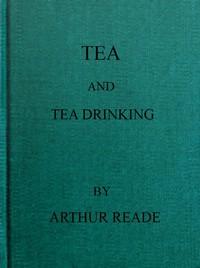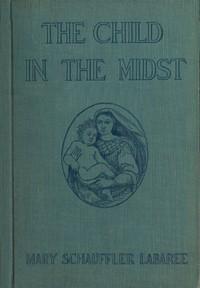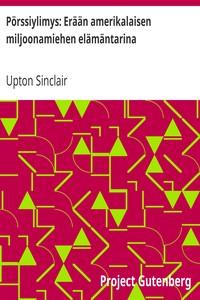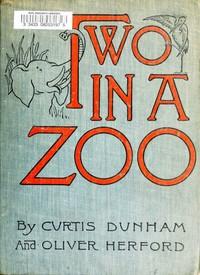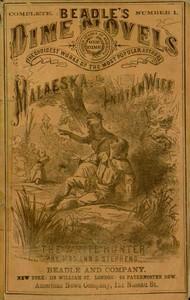|
|
Read this ebook for free! No credit card needed, absolutely nothing to pay.Words: 23264 in 10 pages
This is an ebook sharing website. You can read the uploaded ebooks for free here. No credit cards needed, nothing to pay. If you want to own a digital copy of the ebook, or want to read offline with your favorite ebook-reader, then you can choose to buy and download the ebook. "The kind of water is believed to have great influence over the process; soft water is preferred. The Chinese direction is, 'Take it from a running stream; that from mill-springs is the best, river-water is the next, and well-water is the worst;' that is to say, take water well mixed with air. Hence avoid hard water, but prefer tap-water or running water to well-water. It is the practice of a good housewife in the country to send to a brook for water to make tea, whilst she will use the well water for drinking." The mode of making tea in China is to put the tea into a cup, to pour hot water upon it, and then to drink the infusion off the leaves. While wandering over the tea-districts of China, Mr. Fortune only once met with sugar and a tea-spoon. "The merchant invited us to drink tea," writes the Rev. Dr. Lansdell, who recently visited the Mongolian frontier at Maimatchin, "and told us that the Chinese use this beverage without sugar or milk three times a day; namely, at rising, at noon, and at seven in the evening. They have substantial meals at nine in the morning and four in the afternoon." Dr. King Chambers considers tea most refreshing to the dyspeptic if made in the Russian fashion, with a slice of lemon on which a little sugar-candy has been sprinkled, instead of milk or cream. One small cup of an evening is enough. He also gives the following receipt for making invalids' tea:-- "Pour into a small china or earthenware teapot a cup of quite boiling water, empty it out, and while it is still hot and steaming put in the tea and enough boiling water to wet it thoroughly, and set it close to the fire to steam three or four minutes. Then pour in the quantity of water required, boiling from the kettle, and it is ready for use." Miss Nightingale offers a word of advice to nurses upon the amount of tea which should be given. "A great deal too much against tea is," she remarks, "said by wise people, and a great deal too much of it is given to the sick by foolish people. When you see the natural and almost universal craving in English sick for their tea, you cannot but feel that Nature knows what she is about. But a little tea or coffee restores them quite as much as a great deal; and a great deal of tea, and especially of coffee, impairs the little power of digestion they have; yet a nurse, because she sees how one or two cups of tea or coffee restore her patient, thinks three or four cups will do twice as much. This is not the case at all: it is, however, certain that there is nothing yet discovered which is a substitute to the English patient for his cup of tea." TEA AND PHYSICAL ENDURANCE. Admiral Inglefield, writing in January, 1881, strongly commended the use of tea and coffee as heat producers. "During this almost Arctic weather, and in the midst of these almost Arctic surroundings, permit me as an old Arctic officer to plead for a short hearing in behalf of those whose lives may still be in jeopardy for want of some practical experience how to take care of themselves. Among the working classes there is an all-prevailing idea that nothing is so effectual to keep out cold as a raw nip of spirits, and this delusion is to their minds justified, because they find the "raw nip" setting the heart, and blood in more rapid motion; and heat being generated while the influence remains, a sensation of warmth is the natural result, but after a short space reaction sets in, and a slower circulation must ensue. In the evidence given before the last Arctic Committee, of which I was a member, all the witnesses were unanimous in the opinion that spirits taken to keep out cold was a fallacy, and that nothing was more effectual than a good fatty diet, and hot tea or coffee as a drink. Seamen who journeyed with me up the shores of Wellington Channel, in the Arctic Regions, after one day's experience of rum-drinking, came to the conclusion that tea, which was the only beverage I used, was much preferable, and they quickly derived great advantage from its use while undergoing hard work and considerable cold. If cabmen, watchmen, railway servants, and those who from the nature of their duties are compelled to expose themselves during this inclement weather could be persuaded to give up entirely the use of spirituous liquors and use hot tea or coffee for a beverage, I can promise that they would be better fortified to withstand the cold, they would experience more lasting comfort, and there would be more shillings to take to their homes on a Saturday night; happily, also, the trial of temperance for a time, to meet the present emergency, might become with some the habit of a life." The use of tea among cricketers, scullers, pedestrians, cyclists, and others is also becoming more general; for instance, Mr. Wynter Blyth, Medical Officer of Health for Marylebone, says, "I have studied the diets recorded as in use, and find that those who have done long journeys successfully have used that class of diet which science has shown most suitable for muscular exertion--viz. one of a highly nitrogenized character: plenty of meat, eggs, and milk, with bread, but not much butter, and no alcohol. I have cycled for over fifty miles, taking frequent draughts of beer, and in these circumstances, although there has been no alcoholic effect, it has caused great physical depression. The experience of others is the same. However much it may stimulate for a little while, a period of well-marked depression follows. I attribute this in part to the salts of potash which some beers contain, in part to injurious bitters, and in part to the alcohol. My own experience as to the best drink when on the road is most decidedly in favour of tea. Tea appears to rouse both the nervous and muscular system, with, so far as I can discover, no after-depressing effect." "I purchased a common flat-bottomed 8-1/2-gallon iron boiler, with a lid, long spout, and tap; this is taken in a cart to the field, with a few bricks to form a temporary fireplace, a few sticks for the fire, some tea in 7-oz. packets, and sugar in 4-lb. packets. The first thing in the morning a woman lights the fire, boils the water, the bailiff puts on the 7 ozs. of tea in a small bag, to boil for ten to fifteen minutes, then removes it and puts in 4 lbs. of sugar; if skim milk can be spared, two to four quarts are added, but this is not a necessity, although desirable. All the labourers are then at liberty to take as much as they like at all times of the day, beginning at breakfast-time, and ending when they leave off work at night. If the field is large, they send large cans to the boiler for it; so soon as the quantity in the boiler is reduced to two gallons, it is drawn off in a pail for consumption, whilst another boilerful is being prepared. The knowledge that they have at their disposal as much good tea as they choose to drink during every minute of the day materially lessens their thirst. The cost of tea in my case is as follows:-- s. d. I had twenty-eight men and women employed in hay-making this year, and the consumption was,-- Gals. Generally, 2 boilers full per day 17 Occasionally, 2-1/2 " " 21-1/4 On one day, 3 " " 25-1/2 Free books android app tbrJar TBR JAR Read Free books online gutenberg More posts by @FreeBooks
: The Child in the Midst A Comparative Study of Child Welfare in Christian and Non-Christian Lands by Platt Mary Schauffler - Missions; Church work with children@FreeBooksWed 07 Jun, 2023

: Pörssiylimys: Erään amerikalaisen miljoonamiehen elämäntarina by Sinclair Upton Pispa Hanna Translator - United States Fiction; Industrialists Fiction@FreeBooksWed 07 Jun, 2023
|
Terms of Use Stock Market News! © gutenberg.org.in2025 All Rights reserved.

